Darren Hayman - Interview
by Benjamin Howarth
published: 29 / 10 / 2012
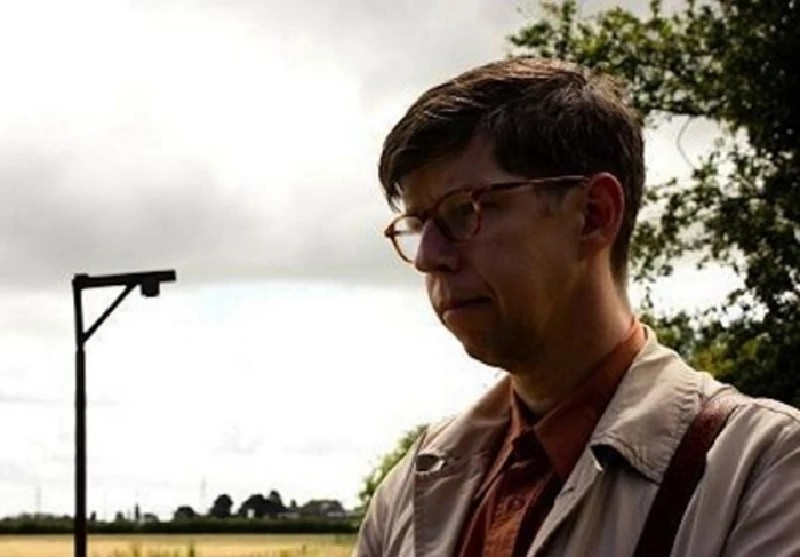
intro
Ben Howarth talks to former Hefner front man Darren Hayman about his new album 'The Violence', which takes as its main theme the seventeenth century Essex Witch Trials
When Darren Hayman first said he was going to make an album about the Essex Witch Trials, you could have been forgiven for thinking that even this most inventive of songwriters might come unstuck. Yet ‘The Violence’ may well prove to be the most acclaimed album of his career. The 'NME' called it “Beirut/Bon Iver/PJ Harvey brilliant”, while 'Uncut' said that the “sorrowful strums and melancholy brass plucks deftly at the heartstrings.” A twenty song album, available either on CD or as a double vinyl, it tells the stories of some of the women hanged during the English Civil War, as Witchfinder General Matthew Hopkins toured the Royalist stronghold of Essex looking for women to blame for the nation’s troubles, and also includes songs about Charles I, Parliamentarian spies and a dog thought to have magical powers. Recorded over three years, it marks the end of a productive run, during which time Darren also released an album of piano ballads ('The Ship’s Piano'), his song-a-day project ('January Songs'), a Christmas EP ('Christmas In Haworth') and a collaborative project about space ('Vostok 5'). On ‘The Violence’, his band (for this album, renamed ‘The Long Parliament’) add a sumptuous mix of strings and brass. A marked shift away from the loose, pub-folk sound of his previous album ‘Essex Arms’, these are some of Hayman’s most carefully constructed arrangements and certainly his most arresting lyrics. Though he will inevitably be told that twenty tracks is too long by someone, to my ears, it feels like an album without a wasted note. A few weeks before the album’s release, I met Darren in his hometown of Walthamstow for his seventh interview with Pennyblackmusic (the first being my first ever interview for the site in 2000). He had spent the day recording a new EP by Enderby’s Room, two of whom also play with the Long Parliament. Dan Mayfield (violin) and Emma Winston (keyboards) sat in on the interview, and chipped in as the conversation went on. I began by asking Darren to tell me more about the ideas behind ‘The Violence’. DH: It is themed around the English Civil War and the Essex Witch Trials, the third record of a group of records – after ‘Pram Town’ and ‘Essex Arms’ – that are themed around Essex. In one lyric on ‘Essex Arms’ I sung about the four humours – “blood, phlegm, yellow and black bile” – and that made me think about writing something historical, and not being allowed to use the lyrical devices that I usually do – like brand names, pub names and buses. Eventually I came up with the Essex Witch trials. PB: Was it a subject you were interested in before? DH: No, not really. At the end of making 'Essex Arms', I had my antennae up for an idea. For example, I was kind of interested in the floods that happened in the late 1950s and 1960s around the bottom of Essex and in Canvey Island. I’m still kind of curious about that, but in the end I came up with the idea of witch trials. There was then a long time before I decided I would definitely do this album. It wouldn’t have taken much to decide that there were a few good tunes, but I’d re-write the lyrics. But I am now a bit of an English Civil War enthusiast. This year my wife took me to a Sealed Knot re-enactment, and I am really interested in it. PB: When I last interviewed you, which was shortly before 'Essex Arms' was released, I think that at that point you had the idea of the witch trials album, but you were finding it difficult. DH: Even though the final album is twenty songs, there were lots of false starts. I didn’t want it to be too much of a history lesson or too expositional. I had to find something else that the album was about – something that’s not just about witches – a central theme that anyone could listen to and think "I feel that too." So, in the end, I realised that the common thread was fear, how fear makes people vindictive or just how people feel when they are frightened. I wanted to avoid making the album a history lesson. It’s the first album that has sleevenotes, which avoids me having to say “This song is about someone who lived then” in every song. I’m still split on that, whether sleevenotes add to it, or whether a good song should be able to tell you everything you need to know… PB: That’s actually something I was going to ask about, because for this album you have made online video diaries, and for 'January Songs' you made very extensive video diaries. I was wondering what you thought about the idea that, in effect, you’re telling the listener what the song should be about… DH: Yeah, I’m still not sure about it. I actually said that the press release we sent out to promote this album shouldn’t mention the video diaries. I wanted those to be very much for people who follow me on Twitter, just for the people who would find them interesting. I am aware of the problem with doing it. I never like footnotes in a book. I always think that not being able to work the information into the text is a failure of your writing. PB: I suppose that leads onto ‘Lido’, where you’ve done music with no words, but you have said that each piece is about something specific. DH: I hadn’t thought of that… they do ying and yang each other a bit. You see, ‘The Ship’s Piano’ was supposed to be the hobby project when I was doing ‘The Violence’, because I was spending so long trying to get these songs right, I was taking a break and going downstairs and doing a love song on the piano. It was kind of the tea break album. But, actually as ‘The Violence’ took so long, I actually did two on my tea break, and did ‘Lido’ as well. I suppose ‘Lido’ is the antidote to ‘The Violence’. Again, with the instrumentals songs on ‘The Violence’, I liked the idea of those songs being about something, even if they didn’t have words. I was very struck by this story of ‘A Dogge Called Boye’, a little white poodle that Prince Rupert on the Royalist side took into battle, who everyone thought was an imp because it survived so many battles. But I thought it would be too hard a song to write well, so I made a sad instrumental to reflect it. I think, as I tried to do with 'Lido', you can try to really think about what the subject is, and play some music for it. There is a story about John Coltrane, who wrote a poem for the sleeve of ‘A Love Supreme’, which people realised fitted the main syllables of the song, ‘A Love Supreme’. It is clear that he is thinking of those words when he was playing – and in fact the song does have a tiny bit of singing, where he sings, "A Love Supreme, A Love Supreme." And there is evidence now that he wrote poems for his other albums too. I like the idea that he thought, "There are words for these, but only I know them." I thought that was really… sweet. That tied into something else that happened to me just the other week. About three weeks ago, I went to a tribute show for someone I actually saw play at the Vortex Jazz Club, but who has now died. On one level, it was a bit corny, because he did a freeform poem, and he wore a cravat. But, he said that he was going to perform a threnody, which is apparently a musical tribute to the dead, and the idea was that he was going to improvise. You could not deny that he was really thinking about his dead friend and trying to play some music for him. I’ve never thought about that, really, until I started listening to improvised music. PB: Do you improvise at all? DH: Dan certainly does. I do a bit, and I do write that way sometimes. Dan Mayfield: You do. You can have improvisational ways of playing, even if it’s the same song and the same notes, Even it is just choosing to do a song a bit slower sometimes… DH: We’re more jazz than most bands! That’s something we do. I will get onstage and say that we are going to do a song twice as fast as we normally do it. Emma Winston: That’s something I’ve actively learned since I started playing with you. DH: I suppose jazz musicians have more time. They keep going until it’s good, and then they stop. I’d like to do more of that. But I also have to be conscious of what people who like my records like. I am an indie singer, and indie kids fucking hate jazz (Laughs)! I am aware of the limitations. When I started buying drum machines, I thought it would be reasonable of me to make an electronic album, but I do think it would be unreasonable of me to make a jazz album. I can’t reasonably expect people to like that. EW: (Laughs) Please make a jazz album! DH: Actually, the album I am making with Dave Sheppard (also a member of the Long Parliament – Ed) is getting very close. Also, the 'Mojo' review for ‘Lido’ said that it was "jazz tinged." I was so happy. I know that what I do can be tagged folk or indie. But, I feel like part of my responsibility is to reach out further, in order tomake the indie-folk I do as interesting as possible, to just put into little hints to other types of music. PB: In terms of instrumentation, ‘The Violence’ is perhaps the most folk-styled of any of your albums… but the songs themselves don’t sound much like folk. I’d say it is much less folky than ‘Essex Arms’. DH: Dan would know, he’s actually our folk expert. But there are a lot of folk songs about witches, they are a bit of a staple – songs about spells and charms, and also hanging. DM: Yeah… it’s the English blues music. DH: It’s also folk in the sense that it is storytelling. But I have been trying hard to make chords interesting, which I suppose comes from jazz. In jazz, they tend not to use the kind of conventional chord sequences that they would use in folk. EW: You’re a fan of suspended seconds. I don’t know if that’s something you’ve always done, but it’s something I’ve noticed since I started playing with you. DM: I’ve noticed that before I could always easily play along to a new song you’d written, and now I often get thrown by a chord change… "Oh no, what are you doing there?" All of the folk tropes I know quite well, so with those I can anticipate the chord changes. PB: One of the differences with this album, as opposed to the two previous Essex albums, is that the geographical locations feel much less a strong part of the songs. Is that fair? DH: Well, I suppose it isn’t really an album just about Essex. The witch trials really happened across East Anglia, though they started in Essex. It’s a loose trilogy really, but I think people might be interested in how my chain of thoughts led me to making this album. I wouldn’t say they should go together in a box set or anything. PB: Though, the song ‘Henrietta Maria’, about Prince Charles’ wife, I thought was similar to some of the songs on 'Essex Arms' – it’s about a doomed love affair. DH: Straight away, when I was doing the research, I was looking out for new ways to look at love stories. Because that’s what I do really, and I’m not interested in straying too far from away from songs about wanting to fall in love. That’s what songs are supposed to be about, mostly. PB: At what point did you decide to make it about more than just an album about witches, and make it more about the Civil War as a whole? DH: I think I always knew it could never be an album just about what happened to a few women in one village. I always knew that there would have to be two or three songs about the broader story of the English Civil War. Then there are some songs that almost don’t fit the narrative at all. There is the song about a Parliamentarian spy, ‘Parliament Joan’, which I just thought was a really great story. And I also thought that it was really interesting that, with the invention of printing press, the English Civil War was the first war with propaganda – they would do these broadsides and leaflets. I didn’t really know what the album was until quite late. In fact, in early August, we nearly sent the mastering off and it was at that point a fourteen track album. And I actually did just find some stuff I had forgotten about, and it took some thinking on mine and the record label’s part, that maybe it did merit being a double album. We did consider doing what we did with 'Essex Arms', of having the album and then doing a small addendum afterwards – an extra CD. But we are doing that as well – there will be an extra CD. We recorded an album of English Civil War folk songs, which I guess will be released in January and February. It includes a different version of ‘The King Enjoys Its Own Again’, which is on ‘The Violence’, and then another ten or eleven folk songs. We could do more I suppose – it’s long enough away. PB: You could do back to back twenty-track double albums! DH: Well, they were hard. There were some we had to change – I couldn’t always sing the songs with all the "hey-diddley-ho" bits, I had to contemporise them. And, oh god, they were long. We did a lot of editing. DM: But that’s because music had a different context back then. It was about telling the stories, over a repetitive melodic line. This was a really easy way for people to remember the stories. DH: I really enjoyed researching that, I went to Cecil Sharp House and learned the songs. That was what I liked about ‘The Violence’ as well. I knew at lots of points that a lot of research would never be used and also there were times when I felt it would never go anywhere. I kind of abandoned the whole thing when I did 'January Songs'. That was sort of me trying to forget about it and I kind of didn’t really go back to it for about a year. Dan, what were we doing then, just mucking about a bit really? DM: Probably releasing about four albums! There was the ‘Vostok Five’ project… DH: So then it was 2012, when I went back to it and started to think whether any of ‘The Violence’ was any good. Most of ‘The Violence’ was written before any of ‘January Songs’, ‘The Ship’s Piano’ or ‘Lido’, so it all went out of order. I’m sort of back to normal now. I don’t know what the next album will be. I haven’t written any of it and I can’t tell you anything about it. PB: I think that’s the first time I have interviewed you where you’ve not already finished the next album at the time you release the one before. DH: I’ve got two ideas – but I’m not particularly sure about them. We’re doing a single for John Jervis (who runs the WIAIWYA label – Ed), who does this singles club, releasing seven singles a year. He’s carrying that on, and we’re the January release. I’ve not written the B-side yet, actually. PB: One final question - on most of your albums, you have done the sleeve art yourself, but on the last two you haven’t. Why was that? DH: I’ve enjoyed not doing it. Frances Castle did the sleeve artwork for 'Lido', and part of the reason why I approached Clay Pipe Music to release ‘Lido’ was that their sleeves looked so great, so it would have been weird to approach a label where the person who runs the label does such great covers and do the cover myself. Then on ‘The Violence’, I managed to get a comic artist who I really liked as a kid. I realised, while I was emailing him about this, in retrospect how important he was to me really. When I bought science fiction comics, most of them were done in a realist way, with directly representational perspectives. And there was this artist Mike McMahon, when I first saw his drawings – wild, angular and expressive – I didn’t like it, he had quite a disregard for proportion and perspective, which has now become quite common. I remember going round to my friend’s house, and laughing at it – “Oh, he draws silly” – and then, eventually realising that I liked it. I think now that was one of the first times that I made the decision to like something that went away from the standard things that you are ‘supposed’ to like. And it was definitely Mike McMahon that made me want to go to art college, and it was there that I started to be in bands. I hadn’t really traced it back until I started working with him on this cover, so it was exciting. Really exciting. PB: Thank you.
Band Links:-
https://www.facebook.com/pages/Darren-Hayman/55543614047http://www.hefnet.com/
Picture Gallery:-
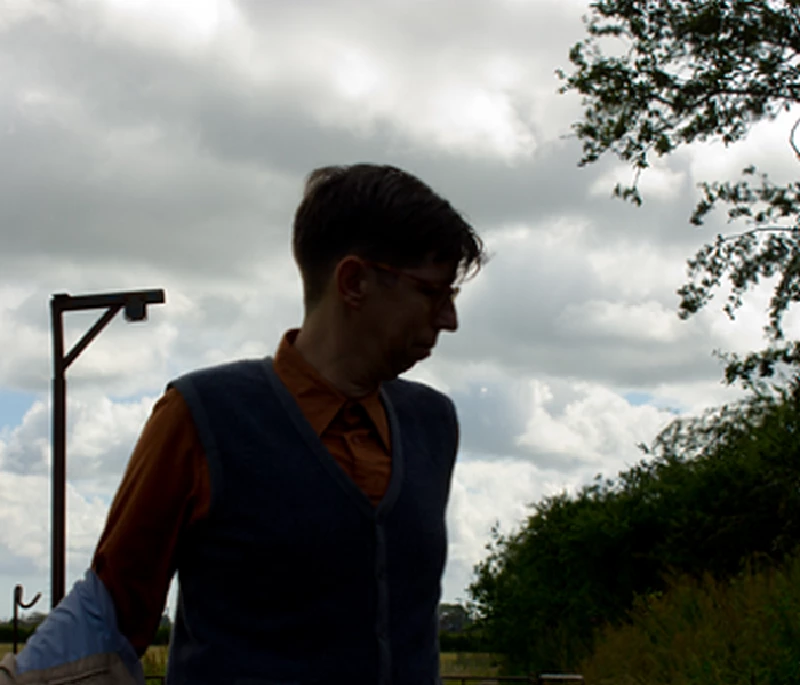
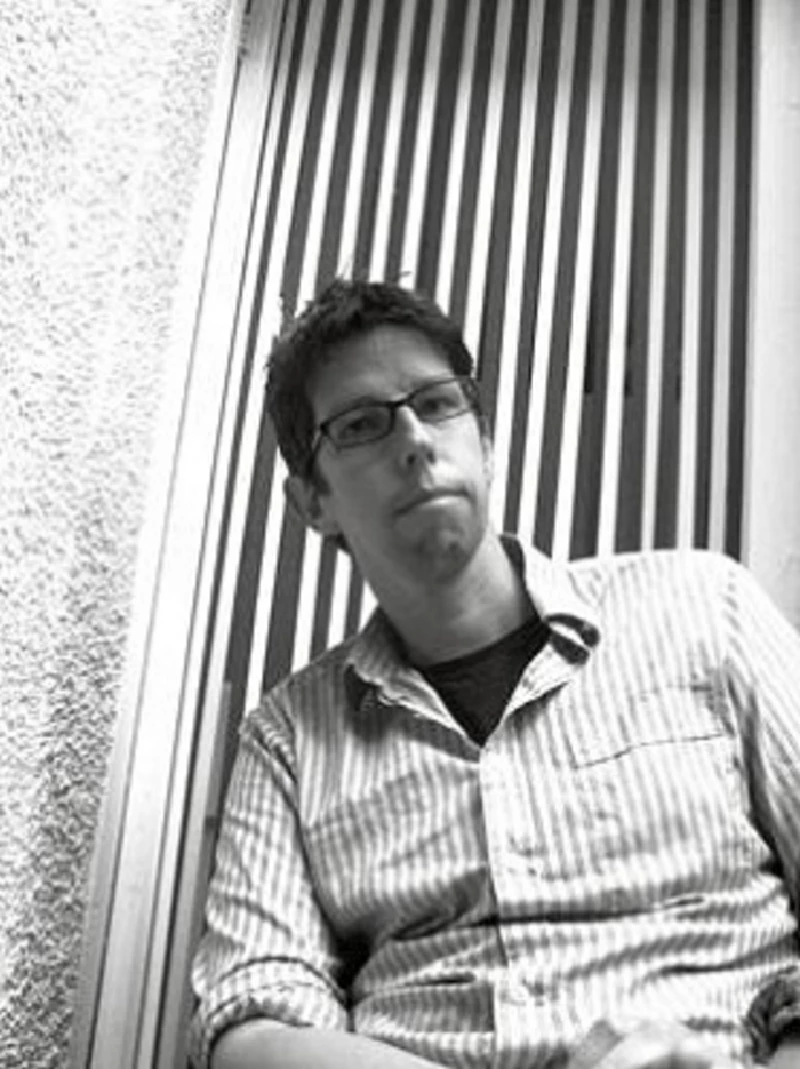
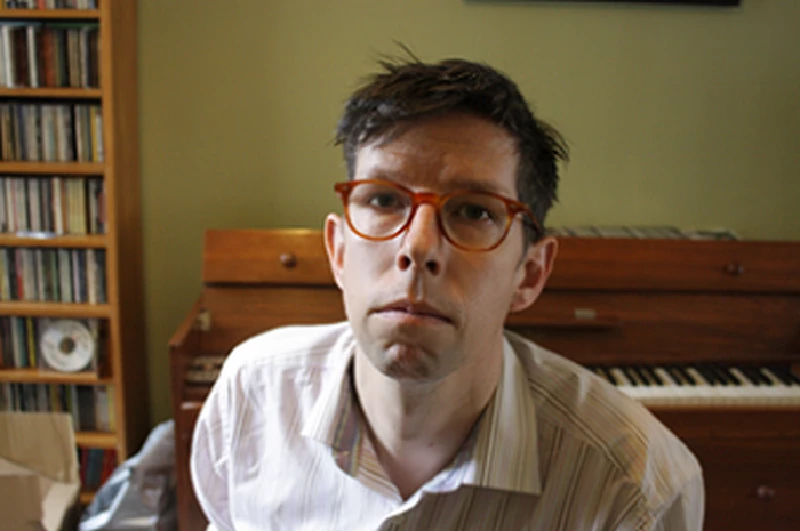
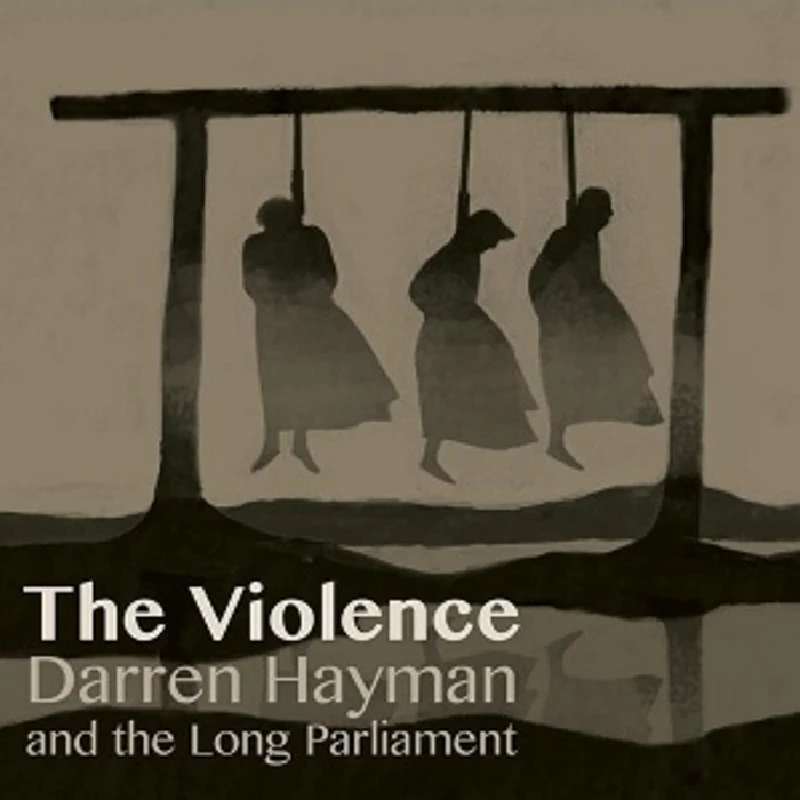
interviews |
|
Interview (2020) |
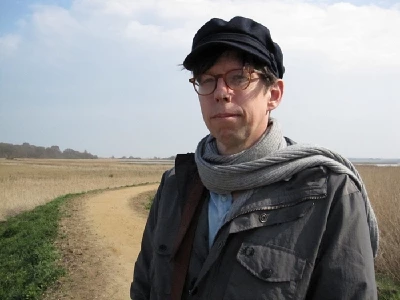
|
| As he prepared for the release of 'Home Time', his 17th album, Darren Hayman speaks to Ben Howarth about his most personal album and his reflections on the end of his epic, award-winning 'Thankful Villages' project. |
| Interview (2009) |
| Interview (2007) |
live reviews |
|
Brudenell, Leeds, 24/6/2011 |
| Helen Tipping enjoys a night of acoustic rock and razor sharp humour from former Hefner front man Darren Hayman at a solo show at the Brudenell in Leeds |
| Camden Head and Bush Hall, London, 19/10/2010...23/11/2010 |
| Lexington, London, 5/3/2009 |
| Luminaire, London, 30/3/2008 |
| Luminaire, London, 12/11/2007 |
features |
|
Ten Songs That Made Me Love... (2014) |
| In 'Ten Songs that Made Me Love...', Ben Howarth writes of his favourite songs by singer-songwriter and ex-Hefner front man, Darren Hayman |
soundcloud
reviews |
|
12 Astronauts (2019) |
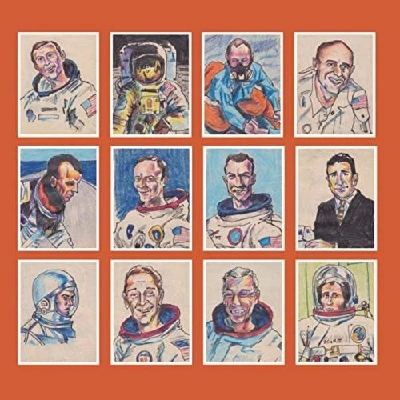
|
| New collection of songs by Darren Hayman celebrates the 50th anniversary of the Moon landings by sharing a very personal perspective of the twelve men who have walked on the moon |
| Thankful Villages Volume 3 (2018) |
| Thankful Villages Volume 1 (2016) |
| Florence (2015) |
| Chants for Socialists (2015) |
| January Songs (2012) |
| The Ship's Piano (2011) |
| Great British Holiday EPs (2008) |
most viewed articles
current edition
John McKay - InterviewRobert Forster - Interview
Cathode Ray - Interview
Spear Of Destiny - Interview
Fiona Hutchings - Interview
When Rivers Meet - Waterfront, Norwich, 29/5/2025
Carl Ewens - David Bowie 1964 to 1982 On Track: Every Album, Every Song
Chris Wade - Interview
Brian Wilson - Ten Songs That Made Me Love...
Shrag - Huw Stephens Session 08.12.10 and Marc Riley Session 21.03.12
previous editions
Heavenly - P.U.N.K. Girl EPBoomtown Rats - Ten Songs That Made Me Love....
Allan Clarke - Interview
Manic Street Preachers - (Gig of a Lifetime) Millennium Stadium, Cardiff, December 1999
Oasis - Oasis, Earl's Court, London, 1995
Barrie Barlow - Interview
Dwina Gibb - Interview
Beautiful South - Ten Songs That Made Me Love...
Pixies - Ten Songs That Made Me Love...
Sound - Interview with Bi Marshall Part 1
most viewed reviews
current edition
Peter Doolan - I Am a Tree Rooted to the Spot and a Snake Moves Around Me,in a CircleVinny Peculiar - Things Too Long Left Unsaid
Garbage - Let All That We Imagine Be The Light
Vultures - Liz Kershaw Session 16.06.88
John McKay - Sixes and #Sevens
Little Simz - Lotus
HAIM - I Quit
Morcheeba - Escape The Chaos
Eddie Chacon - Lay Low
Billy Nomates - Metalhorse
Pennyblackmusic Regular Contributors
Adrian Janes
Amanda J. Window
Andrew Twambley
Anthony Dhanendran
Benjamin Howarth
Cila Warncke
Daniel Cressey
Darren Aston
Dastardly
Dave Goodwin
Denzil Watson
Dominic B. Simpson
Eoghan Lyng
Fiona Hutchings
Harry Sherriff
Helen Tipping
Jamie Rowland
John Clarkson
Julie Cruickshank
Kimberly Bright
Lisa Torem
Maarten Schiethart